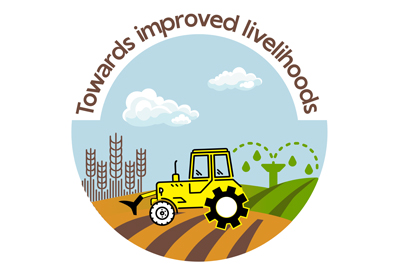Main objectives
The Project will contribute to improving the livelihoods and resilience of vulnerable rural people of the Upper Egypt Region by increasing agricultural production through the transformation from inefficient conventional individual irrigation practices to collective modern smart irrigation techniques and farming systems.
Expected results (outputs)
- Suitable modern irrigation technologies and CSWM practices for replication and up-scaling after piloting across different agro-ecologies of Assiut, Sohag and Qena Governorates.
- Vulnerable smallholder men and women farmers adopting and practicing modern irrigation technologies and CSWM practices and GAP principles under community-based and participatory LUC schemes for sustainably increasing horticultural and field crop production while using water more efficiently.
- Gender-responsive value chains approach is adopted to support the supply of modern irrigation equipment and CSWM inputs and marketing of irrigated horticultural and field crops and processed agrifood products.
- An enabling environment created among approximately beneficiaries and institutional stakeholders at community, district, governorate and national levels for the promotion of collective farming systems and modern irrigation techniques through participatory FFS approaches and enhanced value chains.
Beneficiaries
The project will provide support to around 11,250 vulnerable smallholder men and women farmers from a total of 45 target villages selected through participatory process led by the Ministry of Water Resources and Irrigation (MWRI) and the Ministry of Agriculture and Land Reclamation (MALR).
Main highlights (significant achievements)
- Towards the end of October 2022, FAO and the Ministry of Foreign Trade and Development Cooperation of the Netherlands cosigned the project funding agreement.
- In February 2023, an extended scoping mission composed of teams from FAO, MWRI, MALR and representative from the Netherlands Embassy in Cairo visited the project target governorates and conducted several strategic meetings with representatives from the governorates’ local authorities (including the respective Governor’s office, the directorates of Water resourced and Irrigation and Agriculture and Land Reclamation), community civil society at the governorate and villages level and smallholder farmers.
- On 31 May 2023, FAO and the Ministry of Water Resources and Irrigation, on behalf of the Government of Egypt (GoE), cosigned a Memorandum of Understanding announcing the GoE endorsed project start.
- Following the project launch, a number of meetings at the central and governorates level were conducted to explore and investigate partnership opportunities with traditional and non-traditional partners (ex. Water Users Associations). Parallel to this, a socio-economic baseline study was launched in the project target governorates to draw a reference line to the project planned deliverables/results. A final inception report is expected to be published by end of December 2023.

